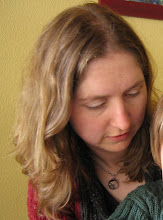Late last year an email came around at work, saying that the Red Cross were looking for more blood donors, and that one of the regularly scheduled minibuses would be taking a group from the Department soon. I decided it was time to give it a go.
I'm usually ok with needles so I wasn't too worried. I marked 'no' to most of the questions on the enormous questionnaire, and everyone female in the room got a giggle out of 'In the last 12 months have you had male-to-male sex?' Uh, no. The next step was an interview, including blood pressure and haemoglobin tests.
They had no trouble getting the needle into a vein on my arm, and the blood started flowing. I sat there squeezing the little rubber ball and trying not to move. I tried to read a novel at the same time but that required too much coordination. The nurse kept coming over and frowning at the machine. It was placed so I couldn't see the display, but it emerged that the blood wasn't flowing fast enough.
According to the red cross website “The donation process generally takes between 7 and 10 minutes and you usually donate 470 ml of blood.”
The maximum time you're allowed to keep going is 15 minutes, and it soon became apparent that despite various attempts to jiggle the needle or change the angle of my arm, my donation was going nowhere near 470ml.
When the nurse took the needle out she said that a clot had formed and that was probably why the flow had all but stopped. She also said my veins might be small; I might just be a "slow bleeder". I was a bit disappointed with this because they didn't get enough for an actual donation, but was reassured that they had enough for the tests they have to do to register me as a donor. I was told to drink a lot of water next time.
A few months later I tried again. I drank an extreme amount of water that morning, and did not have any caffeine. During the interview I was given a keyring to 'celebrate' my second donation. It has my blood type on the back, A+. Which makes me fairly common but not the most common.
Unfortunately, the second donation didn't go an awful lot better than the first. Again the blood flowed a bit slowly, so about one third of the way through, I was given a heat pack for my arm. That seemed to speed up the flow a bit, but it was still not enough. I was quite despondent about it so they reassured me that my puny donation could still be used for some blood products. They suggested that next time I should ask for the heat pack as soon as I get there.
I missed the next bus trip from work, but on Monday some one from the blood bank called me to ask if I could come in soon, so I made an appointment for today.
Well. I avoided coffee and tea. Once again I drank a lot of juice and water. I told the nurse of my previous problems and she checked both of my arms for the best looking vein. I sat with a heat pack on my arm for some time before she put the needle in, and when she did, blood spurted everywhere!
This seemed to be a good sign, But, by about nine minutes, they only had 200ml. The initially slow flow had become sluggish-to-none. Apparently, once the flow slows down, clotting tends to occur and then it’s all over.
As before, the nurse was very kind, and did not make me feel like I had wasted her time. She suggested that perhaps I should stop trying to donate. I had already concluded that it was to be third time lucky or not at all. She did say I should consider trying again in a couple of years, because “things can change, veins can change”, but I think she was just trying to soften the blow. She put a note on the file so that they wouldn’t call and hassle me to donate again. Afterwards I was having a drink before leaving and one of the staff asked me to fill in a form to join the 'frequent donor's club' - you get a travel clock, red of course, if you donate three times in a year. I miserably had to explain that I wouldn't be coming back.
I am really disappointed. It’s such an amazing thing that you can give half a litre of blood with little or no ill-effects, and provide something that is essential to modern medicine. The best I can do is say to anyone reading this that it's worth a try. It is not painful, and doesn’t take very long. All the staff members I encountered at the blood bank (at The Canberra Hospital) were truly very kind and encouraging, and they go to some effort to make donors feel genuinely appreciated. And although I didn’t try them, I’m told they make great milkshakes for after your donation.
Wednesday, May 12, 2004
Subscribe to:
Post Comments (Atom)

No comments:
Post a Comment